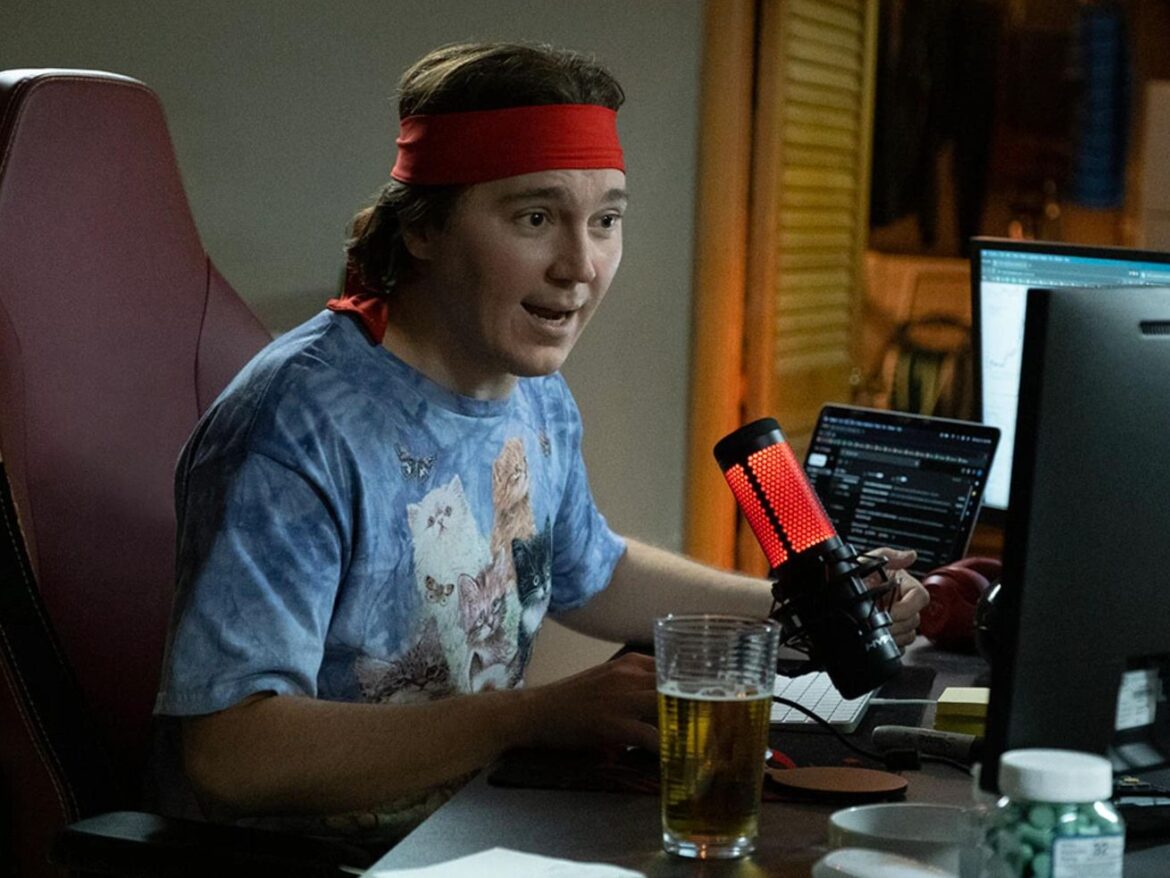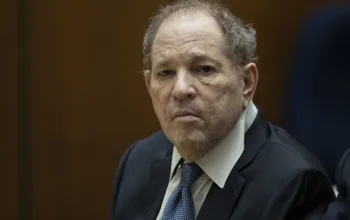Three years later, what do we even know about GameStop?
This is the type of simple story I’d love to be able to tell about GameStop: In early 2021, a ragtag group of everyday traders, led by a Massachusetts dad going by — depending on your social media platform — Roaring Kitty or DeepFuckingValue, took on Wall Street titans and won. The underdogs came out on top, the big bad rich guys wound up on the bottom, and in the process our heroes exposed many of the ways the financial system is rigged. Congress held a high-profile hearing about the incident in which the major players in the saga were involved, and something was likely to come of it. As for GameStop, well, there was still a lot to like about the stock. The whole thing was a virtuous endeavor.
It’s the kind of story I could have maybe told pretty soon after the phenomenon began, though it was never that clear-cut — plenty of normie retail investors were just out to make money, just like the people betting on sports and crypto. The sticking-it-to-the-man narrative has never been a clean one. And two and a half years later, the overall GameStop story has become a whole lot messier. GameStop is still struggling. Wall Street is still winning. Nobody really knows what happened to Roaring Kitty.
This is all probably good to keep in mind when watching the movie Dumb Money, out this month.
The movie is well-executed, exhilarating, and captures the tenor of the times. It was a true “holy fucking shit” moment, to quote the film. It is also a Hollywood dramatization of something quite complicated — not just because markets are complicated, but because reality is. Wall Street types are pretty meh on the whole episode — one hedge funder I recently talked to told me the idea that the big guys are afraid when retail is in a stock is silly. Some GameStop traders may have won a temporary battle, but institutional investors are still winning the war. Even the stories of some of the traders Dumb Money was based on, and who I talked to for this story, are far from cut and dried.
Some big names lost money on GameStop, but others made a bundle. The same goes for everyday investors — some won, some lost, and plenty were just in it for the casino-like ride. Wall Street is paying more attention to individual investors than it used to, but they’re not keeping CEOs up at night, either. Not to be cliché here, but GameStop didn’t exactly change the game.
Dumb Money tells a fun, moving tale of an absolutely wild financial moment
Dumb Money follows the contours of the real-life events of the GameStop short squeeze that took place in early 2021, when shares of the game retailer soared. (There are spoilers ahead here, though a lot of them have already been spoiled by, you know, real life.)
The movie divides its cast pretty neatly among Davids and Goliaths. Head Goliath In Charge is Keith Gill/Roaring Kitty/DeepFuckingValue, played by Paul Dano, the GameStop devotee who found himself at the center of the 2021 storm after months of posting videos about his belief in the stock. Dumb Money plays some of Gill’s real-life hits, including one video where he jokes about dipping a chicken tender — a nod to Redditspeak where “tendies” indicate market gains — into a glass of champagne as GameStop’s price rises.
The other Davids — all fictionalized — include a nurse, a pair of college students, and a GameStop employee whose annoying boss suggests he sign up for a corporate TikTok dance contest when he asks for a paycheck advance. The Goliaths are some familiar real-life figures: Gabe Plotkin, founder of the hedge fund Melvin Capital, who bets against GameStop; Steve Cohen, Plotkin’s mentor; Ken Griffin, the founder of Citadel and Citadel Securities who reportedly really does not like the film; and Vlad Tenev, co-founder of the trading app Robinhood, where much of the GameStop action was taking place.
/cdn.vox-cdn.com/uploads/chorus_asset/file/24921931/IMG_2706.jpg)
Sony Pictures
As GameStop’s stock goes up, so does the movie’s temperature. Plotkin (played by Seth Rogen), who’s made a short bet against GameStop (meaning he wants and expects its price to go down), becomes the victim of a short squeeze, which I won’t get into the mechanics of here but means he starts to lose a lot of money. GameStop investors are in awe when their holdings go up (on paper), but Roaring Kitty’s followers proclaim to be “diamond hands,” meaning they don’t sell. At some point, Robinhood limits trading on GameStop, a move that many to this day see as questionable. Eventually, the major players — including Gill — get hauled in front of Congress to try to explain what happened, to the extent there’s any explanation.
Dumb Money culminates in a sense of triumph for the Davids over the Goliaths. Most of the individual investors portrayed are shown as having made money. The amount Gill made isn’t clear, though we see he’s bought his brother a new car, an indication he came out ahead. The real-life Gill didn’t participate in the film or in the book it’s based on, Ben Mezrich’s The Antisocial Network. He hasn’t posted online or said anything publicly in years.
In an interview with Vox about Dumb Money, co-writers Lauren Schuker Blum and Rebecca Angelo talk about an effort to capture the “collective effervescence” of the GameStop saga, a moment when people came together in excitement and action, and channel internet populism to the big screen. “Our shorthand is, it’s not just a movie, it’s a movement,” Angelo said.
In translating much of the mood of the GameStop saga — which you can brush up on here — Dumb Money succeeds. It was genuinely wild to see the declining mall retailer’s stock price shoot up seemingly out of nowhere — and even weirder to find out it was because a bunch of guys on Reddit willed it so. It was fun to watch the hand-wringing among Wall Street titans and talking heads on CNBC, wagging their fingers that this was all very irresponsible. Not to mention that this all happened as the country entered into year two of the Covid-19 pandemic, when the existential question of each day was when will everything stop sucking, if ever.
While some everyday investors made money on the GameStop play, plenty of them didn’t. That includes Kim Campbell, a nurse based in Los Angeles, who is featured in Mezrich’s book and is part of the inspiration for the nurse, Jenny, played by America Ferrera in Dumb Money, who ends the movie in slightly less debt than she started with. Campbell has dipped in and out of retail trading and penny stocks for quite some time and bought her first 100 shares of GameStop sometime in the fall of 2020. Since then, she’s added to her position and only ever sold five shares — at $420.69. When I asked whether she’d made money on the investment, her response was frank. “I’m not up,” she said, though she continues to hold — diamond hands.
She feels tied to the GameStop community (though she now frequents the message boards less) and is sure the company has plans, though she’s not sure what they are. And hey, maybe the Mother of All Short Squeezes (MOASS) that some of GameStop’s most diehard fans are still holding out for will pan out. “Part of me is like, if it’s going to the moon, I’m not going to give up my seat, I’ve got my tickets,” she said.
Harmony Murphy, who was the inspiration for the character named after her (though she’s a mom of three, not a college student), failed at sticking to the diamond hands ethos — probably to her benefit. At her brother’s encouragement, she made the decision to sell during one of GameStop’s early pops. “I remember putting my head in my hands and bawling,” she said. She did later buy back in. Murphy still gets emotional when talking about GameStop and hopes someday it will bring about change. “These big moments like GameStop and Occupy Wall Street, they will keep coming,” she said.
There is no doubt that a real populist sentiment is sweeping much of the country and the world and that some of that was funneled through and grafted onto GameStop. Income and wealth inequality make people angry, as does the entire financial system. There was real confusion and legitimate upset around Robinhood’s decision to clamp down on trading on GameStop amid the frenzy, but probes into the situation haven’t really unearthed severe misdeeds on the part of Robinhood, Citadel, or anyone else involved. As Schuker Blum noted, however, “You don’t have to break the law for the system to be rigged.”
“What happened with GameStop looks like something evil happened behind the scenes, and that kind of screwed everybody,” author Mezrich told Vox. “It’s kind of hard to know what really happened.”
There’s just no unified theory of the case on GameStop
Dumb Money is really moving. It’s inspirational. It’s fun. It hits a very real sentiment that the rich and powerful have endless advantages that make it impossible for ordinary people to get ahead. Still, what the movie presents is worth probing.
I don’t think many people are going to walk away from Dumb Money eager to download an investing app and start playing the markets. (Plenty of people have already been doing that anyway.) But the level of triumphalism in the movie is a lot. Regular people playing the stock market is fine if that’s what they want to do, but to play the Wall Street game isn’t to overthrow it. Most retail investors are in it to try to make money, not remake the system, and most don’t even do that. Piling into a meme stock isn’t upending capitalism.
“It’s something that we take really seriously, the responsibility to, yes, tell a thrilling, fun, Hollywood movie that captures the best parts of this, but also not pretend that retail traders always win because they do not. The vast majority of the time, retail traders underperform the market,” Angelo said. “And a lot of that has to do with the fact that it’s rigged. The system is unfair.”
The normie GameStop investors who recognized the opportunity for a short squeeze were right — the stock was over-shorted, they saw their chance, and they seized it. The episode took out Melvin Capital — even after getting extra money injected, the hedge fund eventually went under.
“Retail investors did, for a brief moment, manage to get a one-up on some institutional investors by harnessing social media avenues as a way to coordinate, etc., but they had the element of surprise in the GameStop episode,” said Hilary Allen, a law professor at American University who specializes in financial regulation. That element of surprise now is lost.
As for the diehard GameStop investors who kept holding the stock after the early 2021 frenzy, they are another story. Despite high hopes for a pivot under the stewardship of Ryan Cohen, the co-founder of the pet e-commerce company Chewy who has inspired much of the GameStop crowd’s bullishness, the business isn’t exactly hitting home runs. Cohen’s turnaround plan hasn’t really materialized, and the company has gone through multiple leadership changes. Its most recent earnings report was … okay. Nothing to write home about.
“The guys who got in because of the structural short, that was a smart move, and that was the right thing to do,” said Michael Pachter, an analyst at Wedbush Securities who covers GameStop. “The guys who stayed in because they believe in Ryan Cohen: dumbasses.”
Indeed, it appears the people betting against the company have a point. Whatever you think about short selling (and there are people out there who think it’s always bad), GameStop isn’t a thriving business. And for many investors, including some of GameStop’s most devoted, the meme has become quite separated from the retailer itself. The best way to support GameStop isn’t really to buy GameStop’s stock, it’s to buy something from GameStop, which many people still aren’t. GameStop’s meme status has likely bought the company some time for a potential turnaround, but it hasn’t been a silver bullet.
The fact of the matter is there’s still a lot we don’t know about what happened with GameStop and probably never will. It’s also not clear what will come of it; not much has happened on the legislative or regulatory front yet. The momentum to create a more level playing field for smaller investors in the stock market post-GameStop didn’t really go anywhere because there wasn’t an easy place for it to go.
Some critics have taken aim at payment for order flow, which is essentially how platforms like Robinhood let people trade for free. I won’t get into the details here, but if customers aren’t paying to buy and sell stocks, Robinhood is making money somewhere — being paid by market makers to process trades for its customers. And if Robinhood weren’t making that money, investors would likely have to pay to trade. Reasonable minds can disagree on whether that’s the right thing to do. (The SEC is working on new rules around the practice now, but it doesn’t look like it’s banning it.)
There have been endless attempts to make sense of the GameStop episode in print, on TV, and in Hollywood. There’s a reason much of it ends with a shrug or a point that can’t actually be proven. It was a surprising flash in the pan, but at this moment in time, it feels more like a paragraph in a history book than a full chapter.
After seeing Dumb Money, I reached out to a managing director at a major hedge fund I’ve talked to off and on for years to get his read on whether GameStop really changed anything. Speaking under the condition of anonymity, he admitted, yes, retail investors were able to make a dent in that very specific instance, and they could probably do so in a very specific instance again, though he found some subsequent attempts laughable. His fund probably pays a little more attention to retail and Reddit than they did in the past — they tend to do better in stocks with high retail activity. In his mind, Goliath is still very much winning, and David is maybe a bit delusional.
“Generally, the answer is if retail investors are trading something, we’re happy to be trading it,” the hedge funder told me. “Dumb money remains super dumb.”



